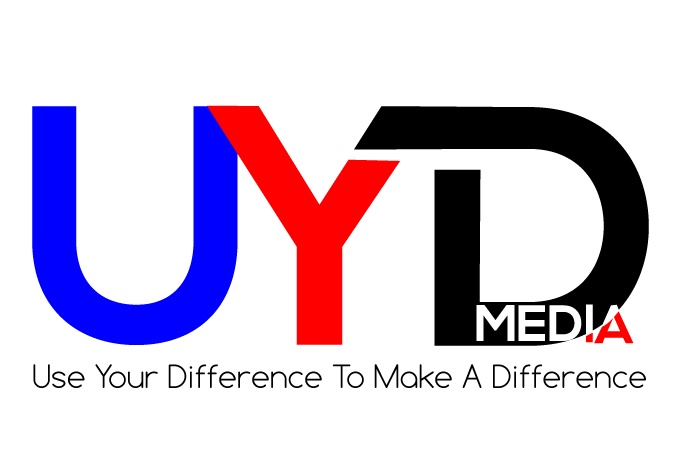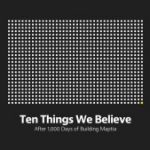You know that 12.3 million you keep hearing about? That’s me, Mr. educated, yet unemployed – or at least it was. I (still) am also what New York Times writer Robin Marantez Henig called one of those “20-somethings,” otherwise referred to as an infamous millennial – as many of you probably are as well. Henig discussed how, due to changing economic and social conditions, people my age transition to adulthood much slower (and differently) than before, and delay milestones such as buying a home, marriage and children. I have to admit, when I read her essay nearly four years ago, I didn’t think she was referring to me. I was 22 at the time, but I was an Arab-American TCK (third culture kid) living in Lebanon surrounded by the comforts of graduate school – that sheltered, structured bubble that protects you from the outside world, or so you think.
I was convinced that academia was for me. Yes, I was heavily involved on-campus in extra-curricular activities, but I never immersed myself in formal training of the corporate world or the numerous NGOs, institutes, think tanks and nonprofits. No, I was set on research, and how would that experience benefit my sociological teaching and research duties anyway? So, I applied to different graduate programs – twice – that I thought I would be a good fit for, but was ultimately rejected both times. And when “grad school, part-two” didn’t work out, I found myself faced with a new, dreaded reality: looking for a job.
Do you remember when the recession hit in 2008? At the time, I stared at the television in the lobby of my collegiate residence hall were I was working as a residence assistant. I watched the stock market fall faster than Felix Baumgartner, and in that young, invincible 20-something way, I thought it would never affect me.
Think again.
After graduating with a Master of Arts in sociology from the American University of in June 2012, I did something else I never wanted to do: I moved back to my parent’s home in Kentucky. With a six-month student loan grace period hanging over my head like a 1980s doomsday clock ticking at five minutes to midnight, I desperately started scanning Idealist.org and other sites looking for the perfect job, or eventually at least a right fit. Rejection after rejection, I began to feel an unfamiliar vulnerability and a lack of confidence creeping over me. Over time, I became engulfed in a world where good news is as welcome as a downpour in the desert, yet is just as rare. I was searching everywhere – from the U.S. to Canada, Australia, the United Arab Emirates, Qatar and Europe – echoing Alternet contributor Thomas McGath’s advice to continue to globalize myself and go (and perhaps, stay) abroad. I contacted what seemed like everyone I knew asking if they could help me.
No luck.
I really had no idea what I was doing. I had committed myself to academia since the beginning of college, so what do I do? My “dream” was to be a professor – to publish research articles, present at academic conferences, and teach students. However, when I formerly made the switch from higher education to international affairs, public policy and/or civil society (I wasn’t sure), I was unsurprisingly still lost. No one ever told me what to do if my goals change or if I choose a new path. I soon discovered there is a disparity between theory and practice. Sure, people say it’s ok for your goals or path to change, but people don’t really expect it to change or offer any practical advice on how to traverse a new direction if it does. I received career advice from many different people – who often contradicted each other – telling me to “put this on your résumé,” “shorten that,” “apply here,” “don’t apply there,” “make this one page,” “make that two,” “rewrite your cover letter,” and on and on.
Then you’re told, “Call them after you apply, be aggressive, follow-up.” But then others say, “No, no, just e-mail, don’t call.” You get lost in the sea of career tips with each website’s career articles refuting the next ones.’ Five months later, I was still unemployed, but it’s amazing what you learn when you challenge yourself, challenge your fears, overcome and transcend. Overcome what you ask? Well, for me, after college, I thought I was so smart and could do anything. After graduate school, however, I was (and to a degree, still am) so overwhelmed by the problems and injustices in the world, as well as the plethora of unanswered questions, that I undoubtedly felt dumber than when I entered. However, aside from a new-found humility I had never previously known, reflecting back on my life since the end of graduate school, I feel like I took a crash course in “Life 101.” It’s the college course that’s never offered (and if so, the professor never showed up to class). I have had ample time to think about where I am in life, what have I been through over the past six, 12, 24, 36, 48 months. In fact, just more than five years ago, I was getting on an airplane bound for a foreign land I’d only heard about when my parents were discussing their lives before immigrating to America.
People called me crazy, telling me, “What!? What do you mean you’re moving to the Middle East!?” Very few truly understood, and in fact, I didn’t really either at the time. For me, I was just following my feelings. But as it turns out, it – like many great opportunities and endeavors – was simply a chance to explore the world, learn about my family history and challenge myself. I’ve been able to see all aspects of my life from the last seven years, make connections, identify the puzzle pieces we call coincidence, and practice what my dad calls “The Lemon Theory,” which is basically staying positive enough to do what you can with what you have (including the bad) and grow in the process. I have been able to realize that most of the time, college equips you with not just a liberal arts education, access to new minds and ways of thinking and networks, but also it gives you a role – one that becomes a cornerstone of your adult social identity. And that role combined with skills is ultimately what people reference when they market themselves, especially in science and business (e.g., “I’m an engineer, I’m an accountant”). However, in the humanities, it is a lot less accepted. It is tough to find anyone that can clinch a job merely by saying, “I’m a philosopher,” or “I’m a poet” (in my case, “I’m a sociologist”). This makes going into the social science and humanities fields – while definitely valuable and worth it in the long-term, or as one author described so well, that there are advantages of being “useless” – tougher in the short-term. And for many like myself, it’s frustrating when you feel that all that awaits you afterward is neo-indentured servitude (a.k.a., unpaid internships) that you can’t afford to take, especially if you don’t have the means to live with parents or family and the privilege ask for their financial support, not to mention the more than $1.2 trillion student loan debt millennials are saddled with.
But my generation, our generation cannot succumb to the stereotype some have labeled us: entitled. As David Burstein points out, there are many hard-working, innovating “20-somethings” working for positive social change. Our cohort is saturated with potential, but we are living in a society filled with archaic structures and systems that severely limit how this potential is tapped. How do we overcome it? How do we even market skills that didn’t even exist three, five, 10 years ago, or weren’t considered nearly as important? How do we contend with a globalized market in a globalized world? For all of us who are unemployed, one thing we can do is modify our attitudes and perspectives, even if it’s difficult. Be proactive, network, be open to new prospects or going somewhere new, update your LinkedIn account and visit your university’s Career Development Center. But most importantly, stay positive, and stand with each other, your fellow 20-somethings, in comradery. Support each other and never forget the power of empathy. Aside from becoming an invaluable life skill, sometimes all you want is for someone to say, “I understand.”
I’m sure that if you can identify with my experience, sometimes you just want to give up. You’re in your 20s, and tired of living at home. You want to be independent again. You don’t want to rely on anyone, especially your parents. But it is so important to stay positive, and you have to persevere. I always think to myself, no matter how bad it gets, no matter how dejected I feel, no matter what is thrown my way, I refuse to give up. I refuse to let life get the better of me. I was and still am stronger than that! And so are you. “Things can always be worse” is my motto. Stay confident, and know that you will eventually find something. Start small, it doesn’t have to be your dream job just yet, and it’s probably better if it isn’t anyway because appreciation is like good cheese: it comes with age and maturity. In the meantime, use your downtime to mature emotionally, and make the best of what you have.
As it turns out, I’m glad I experienced the multiple signs that I’m a 20-something. Unemployment helped me become a better person, and taught me things a university could never teach me. Whether it was résumé development, rediscovering my confidence, rekindling old friendships, mastering rejection (and lots of it), becoming OK with being alone (even when my life is seemingly on pause) or refusing to give up or stop working hard. Moreover, there are four defining elements that 20-Somethings experience that were not mentioned: find your niche, foster your passion and find your purpose in life, decide whether or not to settle and find a life companion or partner. However, no matter how you chose to order these or how tough the economy is, this process, this journey all begins with you. But is sustained by our collective solidarity, to help each other keep our heads up.
So, I challenge you, my fellow 20-somethings. Even if life is giving you lemons, make lemonade. Remember that the search is difficult in today’s world, but not impossible – even if that means picking up and leaving home behind. Take this time to focus on yourself. Grow, develop and mature. Keep your head up; surround yourself with positive, encouraging and supportive people; persevere; stay confident in yourself and your decision-making; and take comfort in Louis C.K.’s words: “You’ll be fine. You’re 25. Feeling unsure and lost is part of your path. Don’t avoid it. See what those feelings are showing you and use it. Take a breath. You’ll be ok. Even if you don’t feel okay all the time.”
************************
Bio: Michael J. Oghia is a TCK currently based in Istanbul. After seven months of unemployment and job searching in the US after finishing graduate school in Lebanon, he was fortunate enough to find consulting work in Indian civil society before moving to Turkey to take a job as an editor. Michael contributes to various online communities and is also a co-host of #TCKchat on Twitter. Tweet him at: MikeOghia. Michael uses his difference to make a difference by using empathy to encourage others to persevere.




